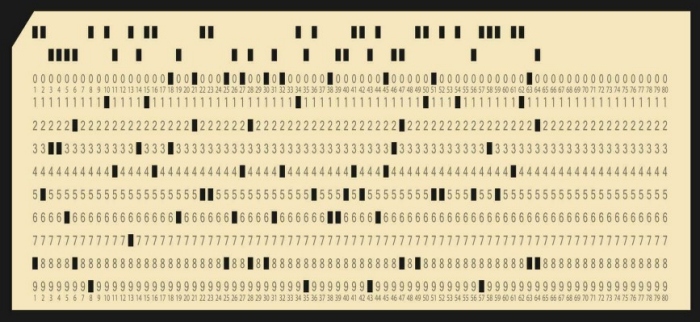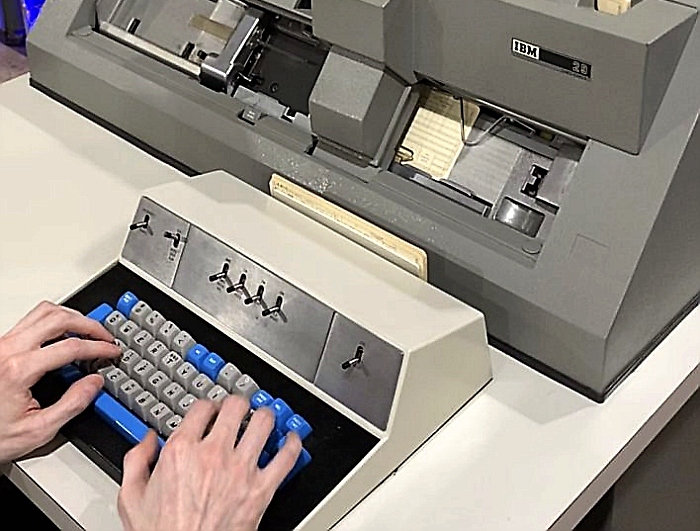Controlling A.I.
Written By Victor Modlinski
I am not the smartest person in the world... but again,
I am not stupid either.
I am actually using my
own brain and life knowledge to write this story without
any type of assistance from artificial intelligence.
I have always been a proponent of technology, it has
done so much good for us over the years. However, many
have used technology for the wrong reasons and we all
know what hackers are capable of and have done in the
past.
Therefore, it makes me very concerned when
I hear about the uncontrolled development of Artificial
Intelligence. The unleashing of this less than proven
technology onto almost every conceivable application and
platform for profit does not justify the ignorance of
putting some kind of controls or ethics on its use.
The ultimate "UnHoly Grail" of the Artificial
Intelligence movement is to combine this technology with
the evolution of super autonomous robots with an A.I.
brain with the ultimate goal of replacing humans in the
workforce and on the battlefield.
The military
has already developed robotics and A.I. weaponry to help
fight wars... just think if you can of robotic armies
that kill without a second thought, pre-programmed with
mission objectives without any regard for collateral
damage... such as innocent human life.
This
technology will evolve (if it already has not) to the
level that A.I. robots will ultimately be able to design
and build other A.I. robots without the intervention of
humans. This evolutionary achievement in self
replication and self awareness will eliminate the need
for organic entities altogether.

An IBM Punched Data Card.
Over the last
fifty years, I have had the experience of working with a
wide variety of hardware and software systems. I have
seen so much advancement and so much failure over those
years. I have also built and repaired an uncountable
number of computer systems... from desktop PC's, server
systems, Internet and networking installations along
with complex security and control systems. I know them
all very well inside and out.
Because of the
knowledge that I have gained, I have absolutely no
confidence whatsoever in a machine being able to do any
of the simple tasks, let alone complex tasks that any
human being can easily perform without a second thought.
However, it is a scary for me to see how easily most
people will cede their own God-given human abilities and
talents so that a computer can do the work or think for
them.
Using A.I. or knowing how to get it to do
your work for you is not a talent or an ability. It is
an excuse and a crutch to help you not do something that
you may consider to be beneath you... like doing actual
work or developing original thoughts or ideas on your
own.
I get it... it's cool, makes your work day
easier and maybe does the research for your school paper
so that you can go out with your friends.
But
don't get me wrong, I am all for new technologies that
helps get work done, but I still like to think for
myself. I would rather do a job correctly mysef than
have someone else do it for me and screw it up,
especially an emotionless unhuman thinking machine.
What I am against is anyone using any type of high
technology to hurt others, to hack, to deceive, to
mislead and potentially terminate biological entities
without cause, logic or reason.

An IBM Data Card Punching Machine.
I believe that a
technology with this kind of potential needs some kind
of Code of Ethics in its development and deployment to
protect its creators... us humans.
There already
exists a good starting point for this Code of Ethics
known as The Three Laws of Robotics. It was created by
science fiction writer and futurist Isaac Asimov in his
1942 short story "Runaround".
Below are The Three
Laws of Robotics as originally written by Mr. Asimov:
- A robot
may not injure a human being or, through
inaction, allow a human being to come to
harm.
- A robot
must obey the orders given it by human
beings except where such orders would
conflict with the First Law.
- A robot
must protect its own existence as long as
such protection does not conflict with the
First or Second Law.
|
Although these three laws were created under a fictional
scenario in a science fiction novel, they can still be
used as a basis for today's real world situation. It
could be modified and even expanded upon to address
emerging capabilities of these technologies.
Some of the suggested modifications have already been
proposed and they work to expand upon the first three
laws and specifically address possible problem areas
that have emerged since A.I. technologies became a
realty.
Some of the proposed additions to the
original three laws are:
A robot must be designed and programmed to
understand and comply with all applicable laws
and regulations, as well as ethical principles,
related to its use.
A robot must be
transparent in its decision making processes,
and must be able to explain its actions to human
beings
in a way that can be easily understood.
A
robot must be designed and programmed to ensure
the safety and well-being of all living beings
that may come into contact with it.
A
robot must be designed and programmed to respect
the privacy and personal data of human beings,
and must not use that data for any purpose other
than those for which it was intended.
A
robot must be be capable of being shut down or
otherwise deactivated in an emergency.
|
There are many other proposed additions and
modifications all over the Internet if you care to
search around. Again, some of them are skewed in
different directions, depending on the individual
recommending them and their point of view based on their
technological orientation.
As humans, we always
seem to find a way to dilute good ideas because of some
reason or another based on experiences in the past that
influences our outlook for the future. This in itself
may be the obstacle that will prevent us in coming to
any complete consensus on how to go about controlling
A.I.
These laws will mean nothing at all,
especially if the powers developing this technology will
not commit to them.
So here we are again... will
you be assimilated?
You aleady are...

Resistance is futile. |
|

 |
|

